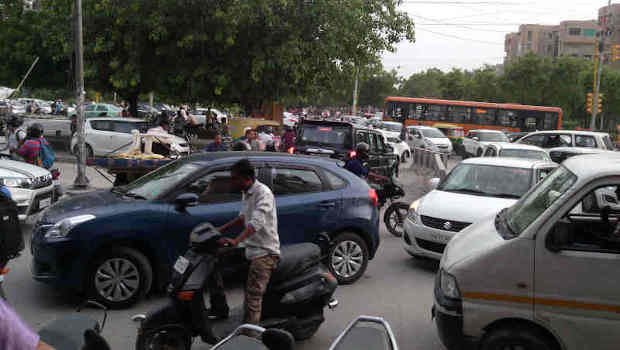Using Digital Networks for Global Recovery from Covid Pandemic

An overcrowded road in India’s capital New Delhi which is the most polluted national capital in the world. Photo: Rakesh Raman / RMN News Service
Universal broadband access is the vital catalyst needed to drive global economic recovery and accelerate lackluster progress towards the UN Sustainable Development Goals, according to a new report released by the UN Broadband Commission for Sustainable Development.
The Covid-19 pandemic has significantly underscored humanity’s growing reliance on digital networks for business continuity, employment, education, commerce, banking, healthcare, and a whole host of other essential services.
Yet today, according to the report, almost half the global population has still never accessed the internet, and hundreds of millions more struggle with slow, costly and unreliable connections, often through remote locations like internet cafés.
The Broadband Commission for Sustainable Development’s 2020 State of Broadband report, released at the Commission’s 10th anniversary meeting on September 18, includes a rallying call to world leaders and heads of industry to place universal broadband connectivity at the very forefront of global recovery from the pandemic and sustainable development efforts.
The State of Broadband 2020: Tackling Digital Inequalities, A Decade for Action, highlights stark disparities in access to high-speed connectivity that have prevented billions of adults and children from benefiting from remote working, learning, and communication.
The report also takes stock of progress made in expanding access to and adoption of broadband infrastructure and services, and achieving the Commission’s seven 2025 advocacy targets.
According to latest ITU data, overall global Internet user penetration stands at 53.6%. That figure drops to 47% in developing countries, and to just 19.1% in the world’s Least Developed Countries (LDCs), falling well below the Broadband Commission’s advocacy Target 3 of broadband Internet user penetration of 75% worldwide, 65% in developing countries and 35% in LDCs by 2025.
A Commission Manifesto issued in conjunction with the report launch calls on the global community to recognize digital connectivity as the foundational element of the United Nations 2030 Agenda for Sustainable Development.
The Manifesto affirms the commitment of the Broadband Commission to mobilize efforts to achieve the ‘Global Goal of Universal Connectivity’ in support of the UN Secretary-General’s Roadmap for Digital Cooperation and other connectivity initiatives.













